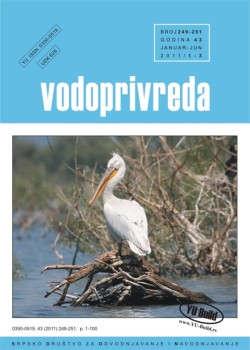Autor: Simonović Slobodan P.
Sažetak
(ne postoji na srpskom)
Water resources systems management practice around the world is challenged by serious problems. Climate change and land use change are increasingly recognized as having the major impact on hydrologic variables and therefore on management of water resources. Certainly, the profession has been slow to acknowledge these changes, and that fundamentally new approaches will be required to address them. There is a clear need to redefine the education and training of water resource engineers and increase their abilities to: (i) work in an interdisciplinary environment; (ii) develop a new framework for the design, planning and management of water infrastructure that will take into consideration current complex socio-economic conditions; and (iii) provide the context for water management in conditions of uncertainty. The main objectives of this review are to introduce the systems approach as the theoretical background for modern water resources management, and to focus on three main sets of tools: simulation, optimization and multi-objective analysis. Special attention is given to system dynamics simulation, evolutionary optimization and use of fuzzy sets to capture uncertainties in water resources management.

